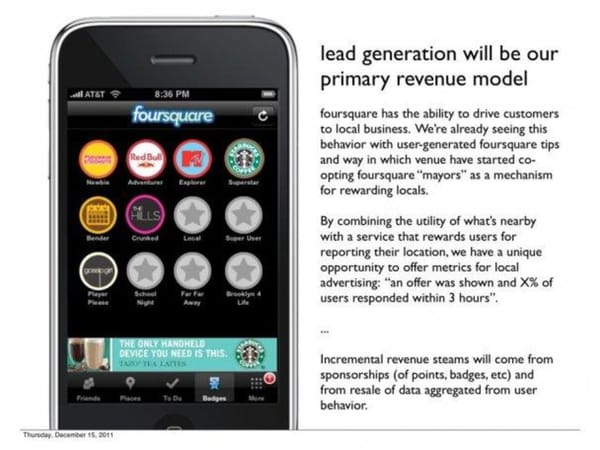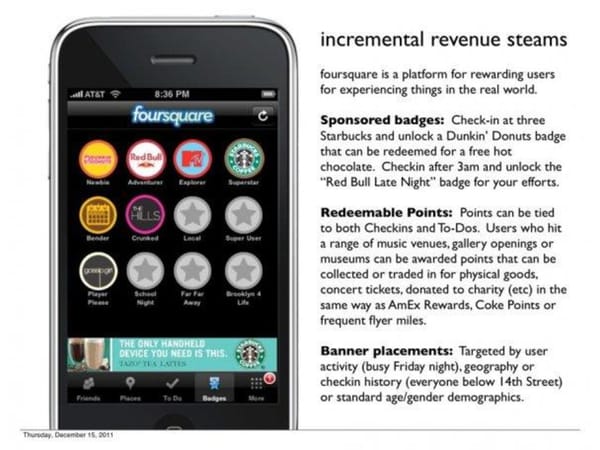Foursquare
 Dennis Crowley Foursquare is one of the biggest, buzziest startups in New York.
Dennis Crowley Foursquare is one of the biggest, buzziest startups in New York.
Scratch that -- anywhere.
The local check-in startup raised $50 million this past summer from Andreessen Horowitz and Spark Capital. It recently reached 15 million downloads and it has been rolling out tons of new features including Lists and Radar.
Foursquare has come a long way in two years. What started as a self-proclaimed "part friend-finder, part social city-guide, part social-game" has become a $600 million company.
We asked cofounder Dennis Crowley for a copy of his original pitch deck so other entrepreneurs could see what Foursquare looked like in its early days. Crowley obliged and sent us a deck from July 6, 2009 -- three months after Foursquare's debut at SXSW and two months before funding talks "really kicked up."
"Decks don't have to be super formal," says Crowley. "It's okay to stray from the 'business school 10-slide pitch deck template."

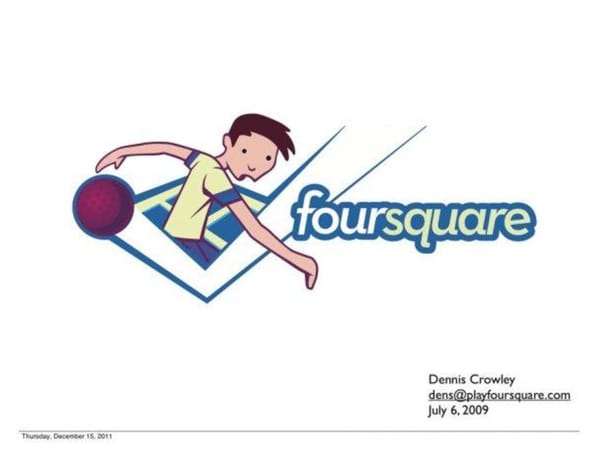
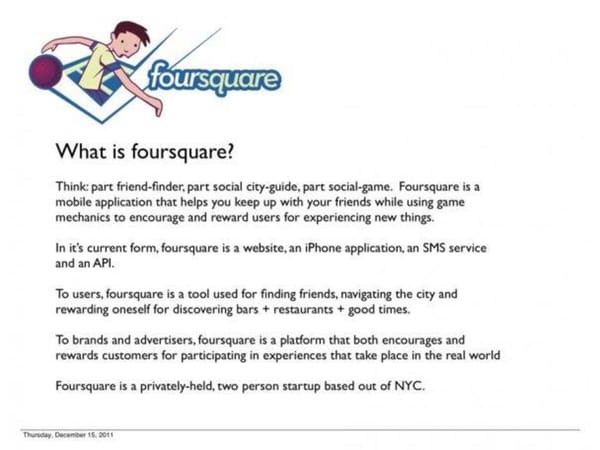
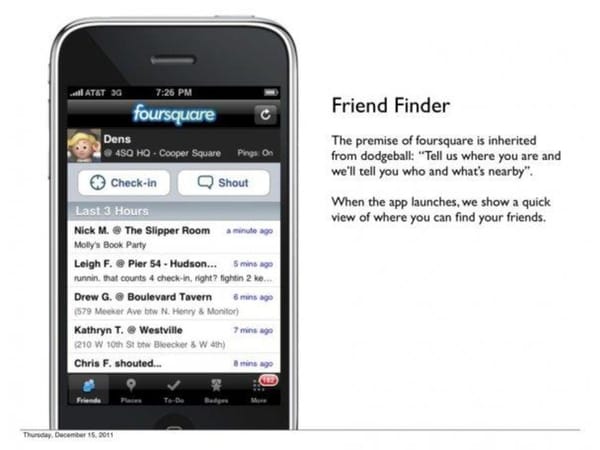
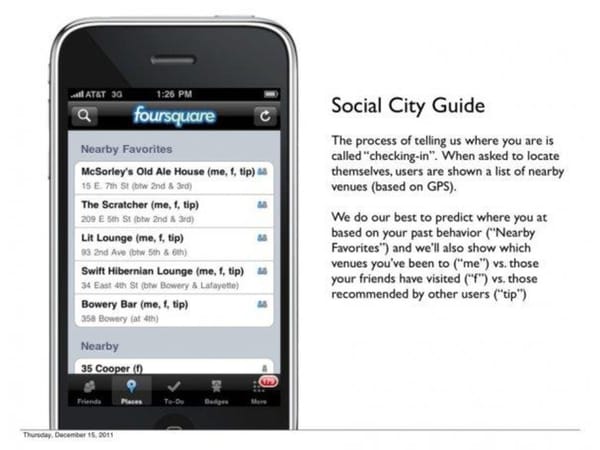
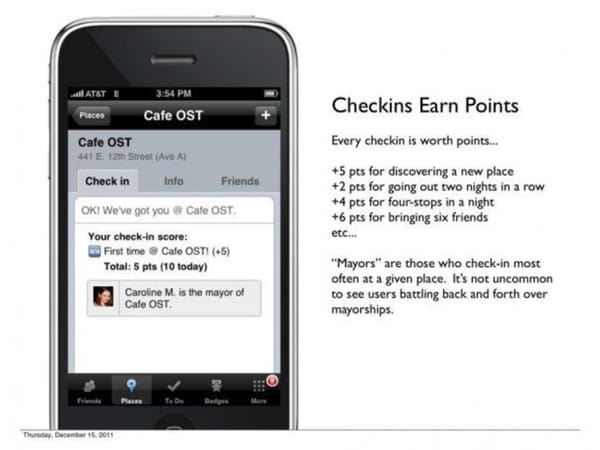
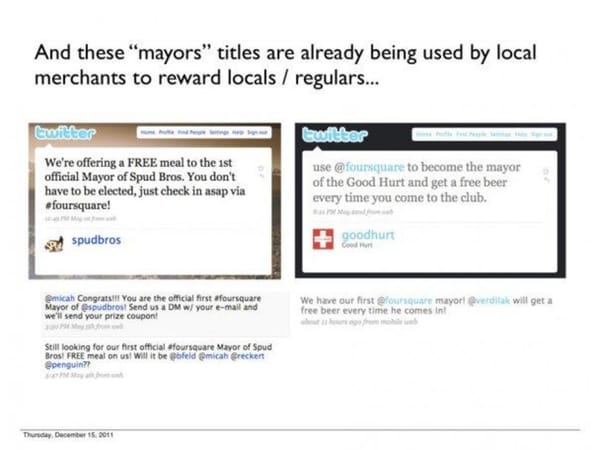
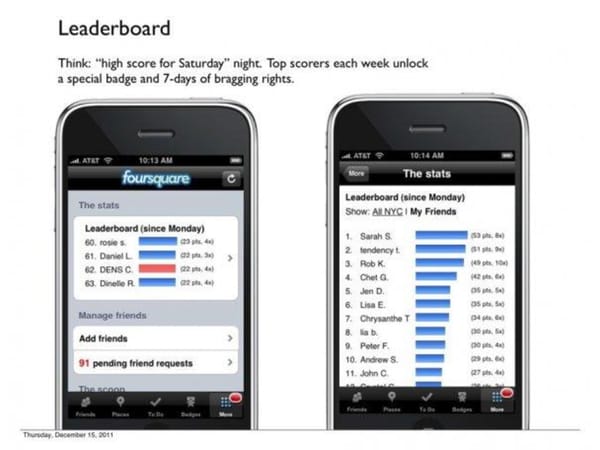
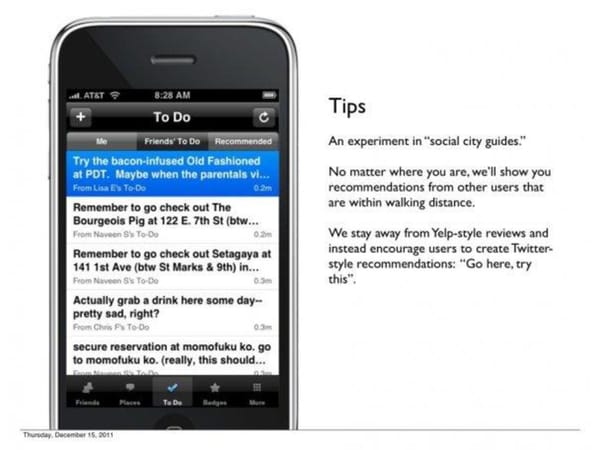
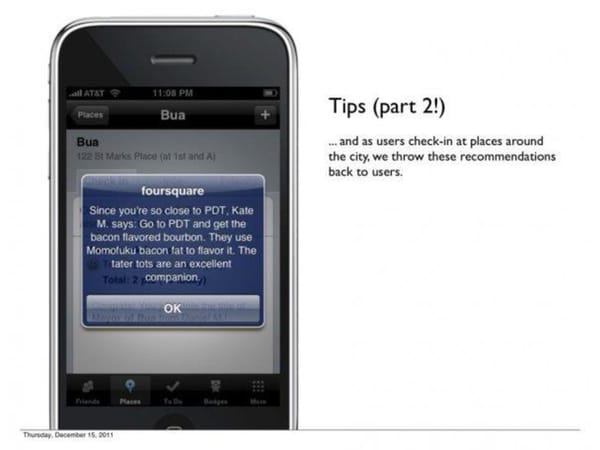
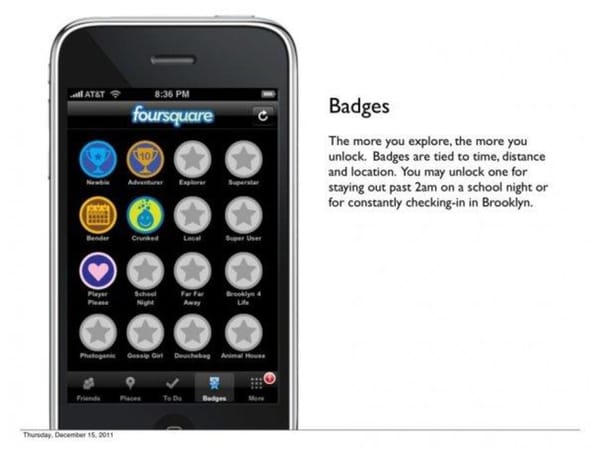
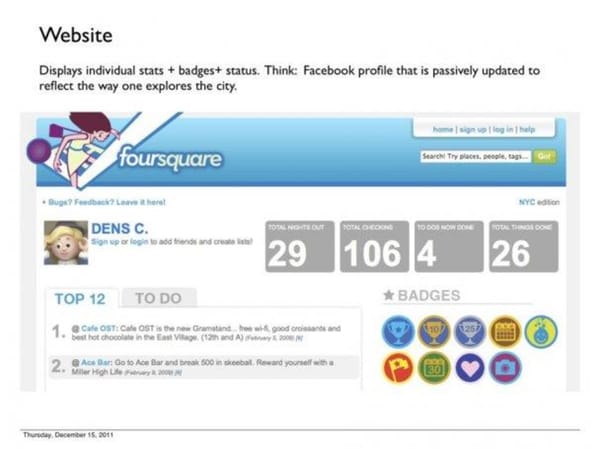
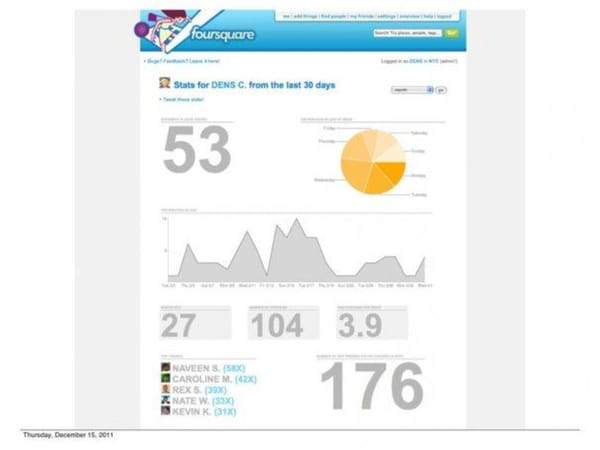
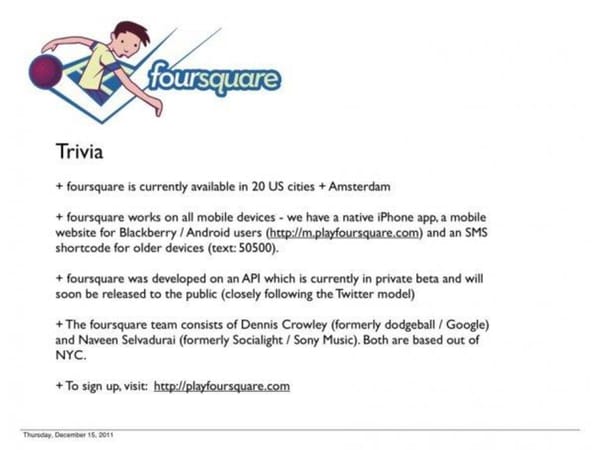
It took 12 months for the location-based social network to attract one million users and by stark contrast; the second million only took three months. Ever since February 2010, the site has been registering over one million 'check-ins' a week.
However, after a hefty $20 million cash injection, led by the major Silicon Valley venture capital company, Andreessen Horowitz, (which is headed up by high profile technology investor Marc Andreessen - co-founder of Ning, an early Twitter investor and Facebook board member), Crowley has many innovations planned.
He is now focused on signing discount deals with a plethora of restaurants, shops and entertainment venues around the world. Foursquare may have held its niche audience's attention for the last 16 months, but its co-founder knows he needs to reinvigorate the app's features and keep adding incentives to keep his users happy and inspired to keep 'checking-in' all over the place.
Here we present five reasons why Foursquare's mainstream success is inevitable:
1. Discounts and rewards
If users choose to remain opted into the setting which allows local businesses to see when they have checked into their venue, they should be able to reap certain rewards. For instance, those who reach mayoral status (by checking in the most in one area), gain access to a Starbucks discount plan.
Crowley is working on scaling these types of deals around the world and making them as highly personal as possible.
2. Winning the game
Badges and mayoralty have so far been the main 'game mechanics', as Crowley describes them, deployed by Foursquare developers to incentivize people to keep checking-in. However, Crowley and his team are currently working on a "whole host of new gaming features" to keep the competition thriving among the community. So stick with it as some more addictive rules to the game are to be released in the near future.
3. Honest place reviews
When people check-in anywhere they have the option to post a message which can be shared across their social networks. This means people can give a real-time location based update on how the food or service is in a restaurant you may wish to visit that night which could change the whole course of an evening. Arguably people are already doing this using Twitter, but Foursquare's service is based on locations near you, which is a different way of disseminating similarly useful information.
4. Efficiently managing the city
Crowley said he and Naveen Selvadurai set up Foursquare with the dream of it becoming a "social utility" which helped people manage 'the city' they were in better. "I was sick of tearing articles out of newspapers when I saw a place I wanted to go and then losing the piece. I thought that there had to be an easier way of organising my time in a place through a location app that my friends were using and updating too."
Certain newspapers, such as The Wall Street Journal, have already added the Foursquare button. This tool allows people, when reading a restaurant review or other cultural coverage on WSJ.com, to click a button to add the venue(s) mentioned in the article to a 'Foursquare to-do list', along with a tip written by a WSJ editor and a link back to the original article.
It is these types of neat innovations which could change the way people plan their down time.
5. Increasingly insightful search
If Crowley signs search partnership deals with the likes of Google and Yahoo! as revealed by The Telegraph, which will allow the general search engine to index annoymised data from Foursquare to show what places are trending in each city, the search experience is likely to become more thorough and useful. Twitter signed deals with all three search engines, allowing them to index tweets, incorporating them into the body of search results. This improved search engine's abilities to serve real-time results.
